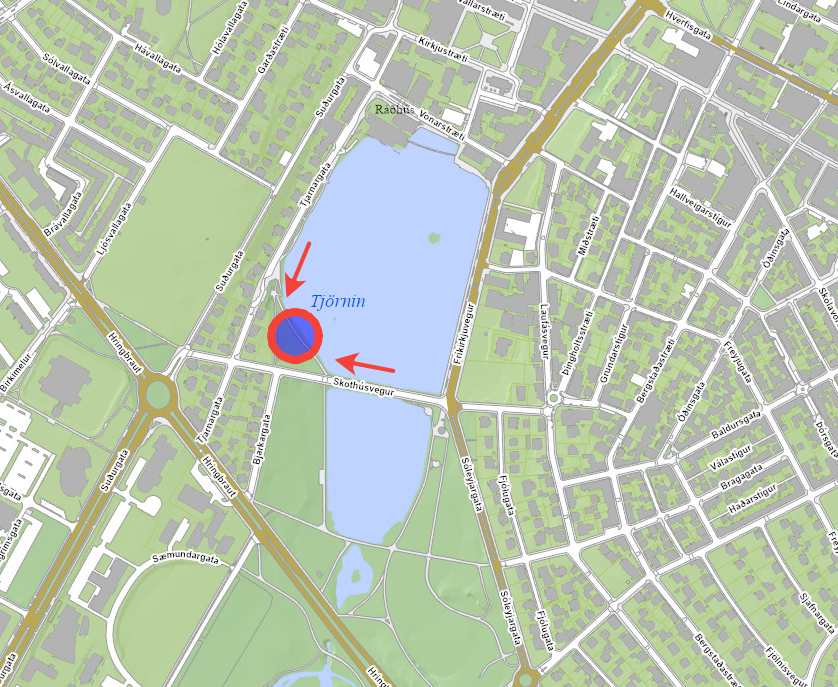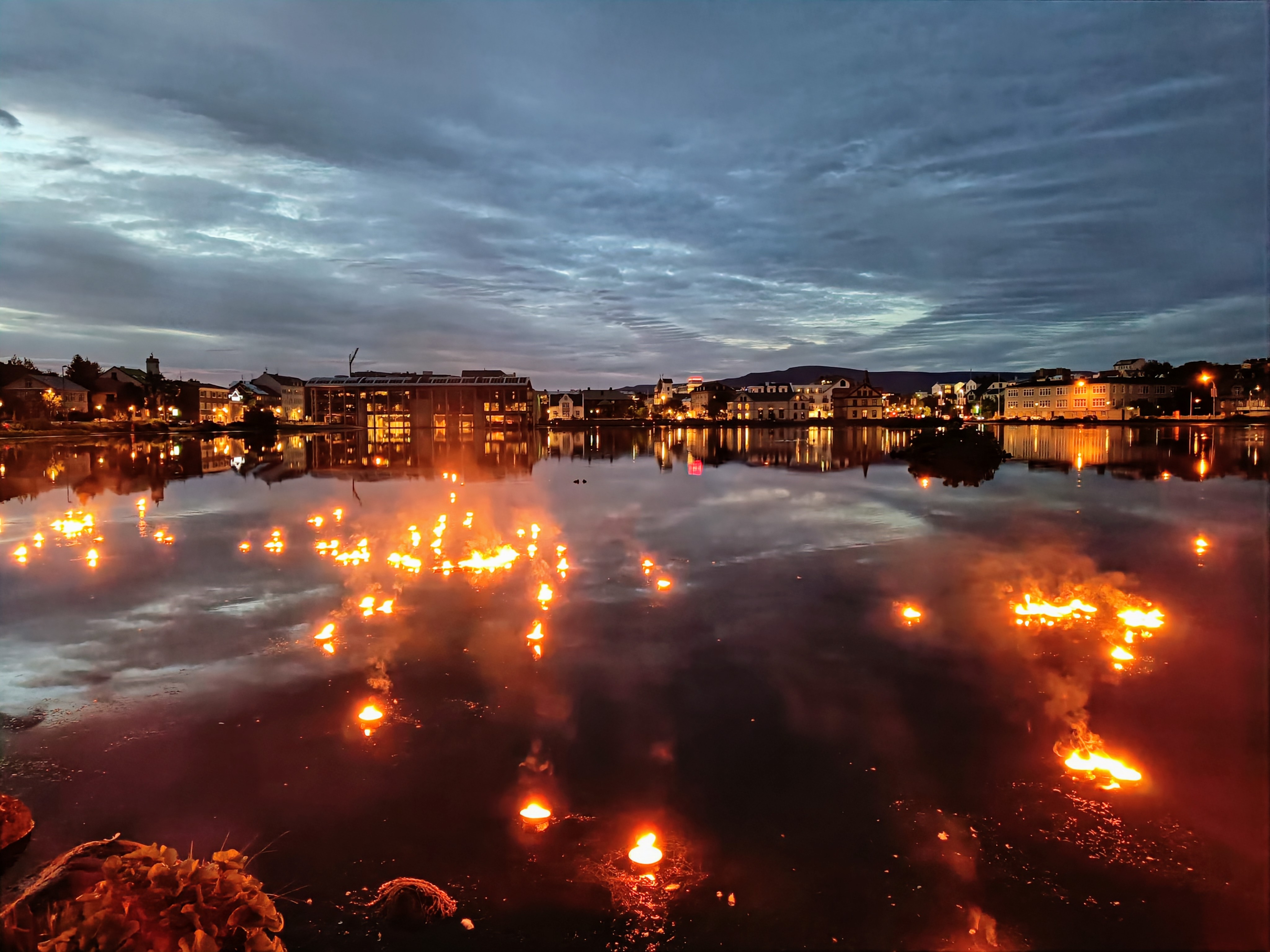English below.
Frá árinu 1985 hafa íslenskir friðarsinnar fleytt kertum á Reykjavíkurtjörn annað hvort 6. eða 9. ágúst í minningu fórnarlamba kjarnorkuárása Bandaríkjanna á japönsku borgirnar Hírósíma og Nagasakí árið 1945, í lok seinni heimsstyrjaldarinnar.
Kjarnorkuárásirnar 1945
Aðeins einu sinni í sögunni hefur kjarnorkuvopnum verið beitt í hernaði. Það var þegar Bandaríkjaher varpaði kjarnorkusprengjum á Hírósíma og Nagasakí til að knýja Japani til uppgjafar á lokaspretti heimsstyrjaldarinnar. Árásunum var að öllum líkindum einnig ætlað að sýna Sovétmönnum styrk þessara nýju vopna fyrir Kalda stríðið sem hófst skömmu síðar. Allt að 200 þúsund manns eru talin hafa farist í árásunum og enn fleiri máttu berjast við afleiðingar sprenginganna löngu síðar.
Baráttan gegn kjarnorkuvopnum
Þótt kjarnorkuvopnum hafi ekki verið beitt frá árinu 1945 eiga helstu herveldi heims fjölda slíkra sprengja í vopnabúrum sínum, einkum Bandaríkin og Rússland. Þessi vopn geta útrýmt mannkyninu margoft ef til kjarnorkustríðs kæmi og sú hætta er alltaf fyrir hendi að kjarnorkuvopn muni springa fyrir mistök. Fjölmargar þjóðir heims hafa undirritað sáttmála Sameinuðu þjóðanna um bann við kjarnorkuvopnum. Ísland er ekki í þeim hópi, enda hafa öll aðildarríki Nató neitað að gera það þar sem kjarnorkuvopn eru mikilvægur þáttur í hernaðarstefnu þeirra.
Why do we float candles?
Since 1985, Icelandic pacifists have floated candles on the Pond in Reykjavík, either on the 6th or 9th of August 6th, in memory of the victims of the US nuclear strikes on the Japanese cities of Hiroshima and Nagasaki in 1945, at the end of World War II.
The 1945 nuclear attacks
Only once in history have nuclear weapons been used in warfare. It was when the US military dropped atomic bombs on Hiroshima and Nagasaki to force Japan to surrender in the final stages of World War II. The attacks were also likely intended to show the Soviets the strength of these new weapons before the Cold War that began soon after. Up to 200,000 people are believed to have perished in the attacks, and even more had to struggle with the consequences of the explosions long after.
The fight against nuclear weapons
Although nuclear weapons have not been used since 1945, the major military powers of the world have a number of such bombs in their arsenals, especially the United States and Russia. These weapons can wipe out humanity many times over in the event of a nuclear war, and there is always the risk that a nuclear weapon will explode by mistake. Many nations of the world have signed the United Nations Treaty on the Prohibition of Nuclear Weapons. Iceland is not in that group, as all NATO member states have refused to do so as nuclear weapons are an important part of their military strategy.



